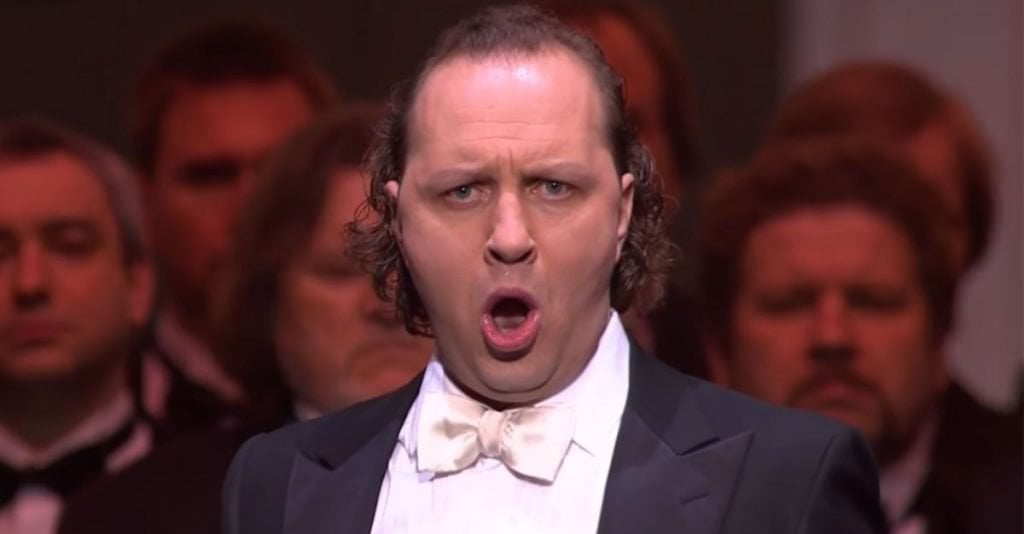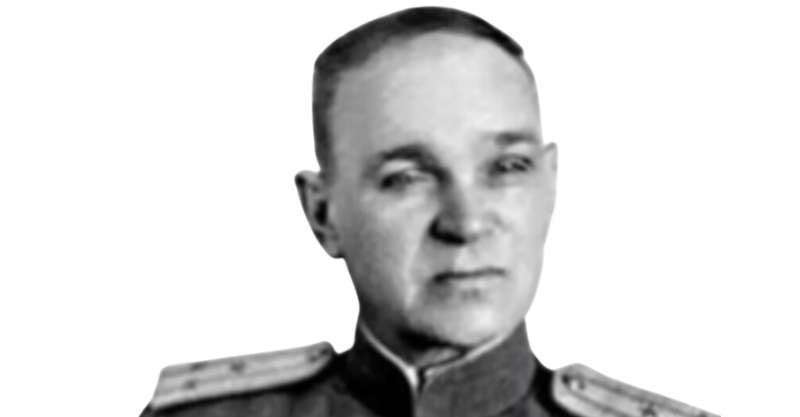
Although most Russian songs aren’t well-known outside the country, a few of them have become international hits thanks to their undeniable greatness. Here are some of the most famous Russian songs ever.
“Aristocrat” by Morgenshtern
Song Year: 2021
A hip-hop hit, Aristocrat follows a noticeably Russian pacing style while focusing on its flow. In the tune, Morgenshtern emphasizes wealth and the power that comes with it, making specific references to the riches of the United Arab Emirates and Dubai as a point of comparison.
Like many rap songs, Aristocrat is relatively crude, although some of the swears and rap bars can be easy to miss without fluency in Russian. It also shows that while the country is better known for more somber tunes, artists occasionally break through with something else entirely.
“Exhibit” by Leningrad
Song Year: 2016
With nearly two hundred million views since its initial release, Leningrad’s “Exhibit” is easily one of the most popular Russian songs ever released. The song satirizes life in Russia, adding a catchy beat to flow with the expertly-done music video.
The lyrics discuss the singer’s feelings that she’s a genuine standout, whether in an art exhibition or in a crowd of other women. It’s far more pop than most of the other songs on this list, but you don’t get as popular as Exhibit by accident.
“Love Your Voice” by Jony
Song Year: 2019
This pop hit mixes English and Russian lyrics for an upbeat, classic styling that’s easy to sing along to once you know the words. The lyrics focus on the singer finding comfort in the voice of a loved one, which isn’t a big surprise when you consider how central sound is to many singers.
The Russian part of the lyrics talks about dangers and storms outside, and how the voice of someone the singer loves brings protection and salvation from such troubles.
“Pikachu” by Mia Boyka and Egor Ship
Song Year: 2020
Yes, this really is a song about the iconic Pokemon characters. This smash hit in Russia is a clear parody of Pokemon, using the mascot of the famous monster-collection franchise as the central theme of an upbeat bop about love. Several of the lyrical tricks in this song work in Russian and English, including “chu” and “choose” sounding the same.
“Pikachu” is a love song at heart, emphasizing romance and the importance of choosing love. The lyrics have a somewhat more international feel than some of the other best Russian songs on this list, so “Pikachu” is a great place to start your journey into the nation’s music.
“Ey, Ukhnem!” by Unknown
Song Year: ~1866
Also known as the Song of the Volga Boatmen, “Ey, Ukhnem!” was originally sung by barge haulers working along the iconic Volga River. The original author is unknown, but Mily Balakirev collected it for a book of folk songs published in 1866, and it was later set to music by composers like Igor Stravinsky.
Like many working songs, this tune emphasizes timing and instructions for the singer to aid in their work along the river. It’s especially valuable for coordinating singers, and today it’s most popular with people who can sing in the bass range.
“Polyushka Polye” by Lev Knipper and Viktor Gusev
Song Year: 1935
Considered a classic Russian song, Polyushka Polye goes by many names outside the country as people have tried to figure out the best way to translate it. The lyrics are essentially a wistful love tune, discussing women’s emotions as they watch their partners leave for a long time.
Notably, this song came shortly after the start of a dispute with China. However, that wasn’t nearly as big of a conflict as Russia would find itself in a few years later. Polyushka Polye became much more popular when World War II spun up, as people felt it fit the times.
“Korobeiniki” by Nikolay Nekrasov
Song Year: 1861
Based on an older poem by Nekrasov, Korobeiniki has been set to music multiple times in many styles. The name refers to peddlers who used to trade wares throughout the area, and the lyrical version of the song focuses on a girl who refuses to purchase a peddler’s wares unless she can marry him.
Korobeiniki is also internationally famous because it’s the main theme of the classic video game Tetris. Many other singers and bands have remixed the song, too, so there’s a good chance you’ve heard it in several places.
“Alyosha” by Eduard Kolmanovsky
Song Year: 1966
Composed by Kolmanovsky in cooperation with poet Konstantin Vanshenkin, Alyosha is about a monument set up in Bulgaria in recognition of losses during World War II. It’s enduringly popular in both countries, where memories of that war have had a huge impact on the lives of all citizens.
Like many Russian songs, the tune is somewhat somber overall but emphasizes ongoing friendship and vigilance between Bulgaria and Russia. Up until just before 1990, Alyosha was also the anthem of Plovdiv, the city hosting the monument, and they often played it on local radio.
“Rumka Vodki na Stole” by Grigory Leps
https://www.youtube.com/watch?v=YEb1T0Wz3Ck
Song Year: 2012
You can’t talk about famous Russian songs without vodka coming into it somewhere. This song is mainly an allegory for alcohol and oppression by one’s circumstances, including the feelings people have when they depend on something that isn’t necessarily good for them.
Vodka is a significant part of Russian culture and has been for ages, in part as something to help ward off the pervasive chill throughout their cold climate, so the lyrics are something almost everyone there can relate to.
“Farewell of Slavianka” by Vasily Agapkin

https://www.youtube.com/watch?v=FJt_JdFwLw0
Song Year: 1912
Written to commemorate the First Balkan War, which started the same year of its composition, the “Farewell of Slavianka” is a tribute to the women saying farewell to their husbands heading away to fight. Just two years later, this patriotic melody experienced a surge in popularity with the start of World War I.
Agapkin’s song has remained a favorite since then, often played on boats and the Trans-Siberian Railway as entertainment for the passengers.
“Kombat” by Igor Matvienko
Song Year: 1996
Released on an album of the same name, Kombat is a patriotic pop song, mixing
martial culture with the popularity of cigarettes, vodka, and a call for people to take decisive action.
Kombat also references wives and girlfriends remaining behind, which is one of the most common motifs in famous Russian songs across the decades, especially in songs written around the World Wars.
“Dorogoï Dlinnoyou” by Boris Fomin
Song Year: 1924
A folk song thought to originate with the Roma people, this song’s title usually translates as “Those Were The Days”, and it’s been heavily remixed and modified by different singers and artists since its release. It’s especially popular throughout Russia, where it often has dancers performing it.
The original Russian lyrics discuss the grief of loss and a desire to follow someone instead of being left behind. Gene Raskin made an English version of the song in the 1960s with wholly different lyrics. That’s a good version in its own right and has had several covers itself, but not ideal if you’re looking to understand the meaning of the original Russian.
“Director” by Gradusy
https://www.youtube.com/watch?v=V1MK9244sE8
Song Year: 2011
Gradusy isn’t well-known outside Russia, but the group has been impressively popular within the country. Dmitry Bakhtinov, one of the band’s leading members, wrote this song specifically in response to a tragedy in his own life.
However, while Russian songs already trend toward melancholy, Bakhtinov ultimately decided against releasing the original version. He felt it was too depressing even for his homeland, so he adjusted the tone to be more positive and affirming. The result is tens of millions of views since its initial release, proving he was onto something with the change.
“I Want To Be With You” by Anna Semenovich
Song Year: 2017
Another notable hit from inside Russia, Semenovich’s song starts with a discussion about a dream and how separated lovers were reunited after a fight. Like many pop tunes, love is a major element of the song and the lyrics focus heavily on believing in love despite the obstacles that can get in the way of feelings.
“Kazachok” by Boris Rubashkin
Song Year: 1970
Released as part of a mix of Russian folk songs in his 1989 album, Boris Rubashkin’s “Kazachok” (also spelled “Casatschok”) is a dance song typically involving a group of performers performing traditional group moves. He’s reworked it several times, including with some wholly instrumental versions, but it’s always at its best with someone doing vocals.
“Before Dawn” by Sati Casanova and Arsenium
Song Year: 2014
One of the most popular duets in Russian history, Before Dawn (also translated as “Until Dawn”), is essentially a love story. The lyrics are traditionally Russian in their melancholy for the future, acknowledging that forthcoming times can be difficult. To counter that, the song emphasizes enjoying the time you do have without worrying too much.
“Podmoskovnie Vetchera” by Mikahil Matusovsky
Song Year: 1955
Originally written as Leningrad Nights, Matusovsky changed the lyrics to focus on Moscow after a request from the Soviet government. The ballad-like lyrics are gentle but discuss the cold nights (even in summer), the beauty of a still river, and the moon overhead during the middle of the night. It’s also a little more popular outside Russia than inside it.
“Song of the Trololo” by Edouard Khil
Song Year: 1976
There’s no good explanation for this one. People on the internet love to popularize the strange and unusual, and in one case this happened when people uncovered a 1976 clip of Edouard Khil performing a non-lexical vocable song (that is, essentially nonsense filler syllables) version of another Russian song.
While the original had intelligible lyrics, Khil explained that their team wasn’t satisfied and decided to just fill the space with something more playful while keeping the tune they wanted to play. Internet memes come and go, but “Trololo” certainly made a mark when it surfaced.
“Katyusha” by Mikhail Isakovsky and Matvei Blanter
Song Year: 1938
One of the best Russian songs of all time, Isakovskyand Blanter published “Katyusha” in 1938 and it gained rapid popularity as a patriotic song. Like many of the country’s enduring hits, it’s a song about love in war, with the singer being a woman who’s planning to protect her love while her soldier fights to protect the country.
Many other countries have recorded translated versions of the song for their nations, showing the versatility and underlying quality of the musical composition.
“Kalinka” by Ivan Larionov
Song Year: 1860
Perhaps the most iconic Russian song of all time, “Kalinka” was originally written for part of a theatrical performance. The title word refers to the viburnum opulus, or snowball tree, which is a national symbol of Russia. Culturally, the Kalinka’s berries also represent passionate love, especially from beautiful women.
Few songs have anywhere near the longevity or enduring popularity of “Kalinka,” regardless of where they originated. If there’s a single Russian song to listen to, this is it.
“Pobolelo I Proshlo” by Hensy
Song Year: 2021
Released in 2021, Pobolelo I Proshlo is primarily a song about pain and recovery. It’s a somewhat angry track, with repeated references to sprinkling salt on wounds, resentment, and the feeling of being shot (or hurt) by others.
However, despite the pain, Hensy also refers to how the pain goes away. It may not always be enjoyable, but deciding to let your emotions out and move on can be a powerful tool for personal growth.
Best Russian Songs, Final Thoughts
Famous Russian songs mainly feature patriotic tunes about separated lovers, but Russian artists also have a surprising range that mixes in rap, ballads, and more. Many even have remixed versions in other languages, showing that there’s some outstanding compositional talent in their centuries of musical experience.